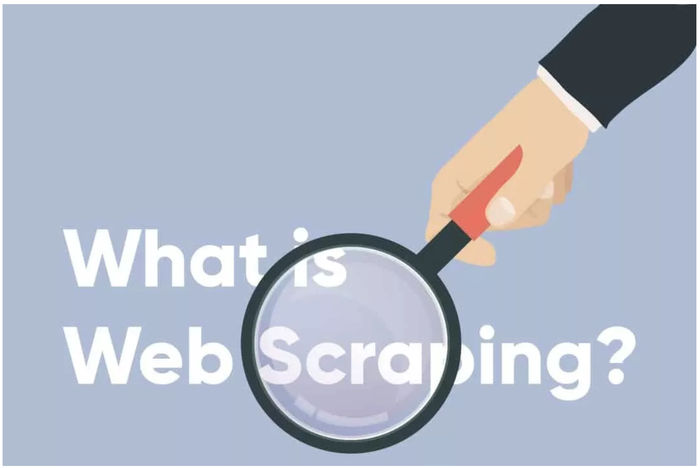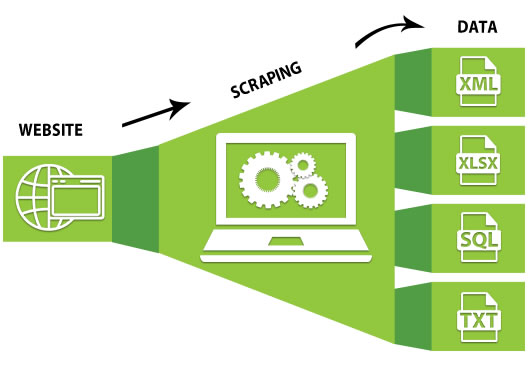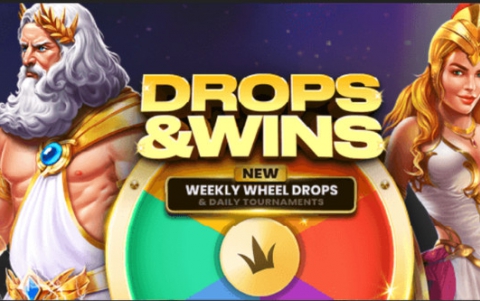Get Started With Web Scraping
Web scraping has increased in popularity in recent years, as APIs and technology make data access easier and easier.
Though you used to need advanced technical skills to undertake web scraping, new applications are making it more and more accessible.
As a result, many businesses and individuals are turning to web scraping to build their business quicker, create useful content, and make more informed decisions. Services like Proxyempire, make it much easier to scrape the web successfully and with less hassle.

Why Scrape Information From The Internet?
Though there are literally thousands of things you could do with scraped information, here are some popular examples.
Compare Prices
Websites like Kayak.Com make a living from scraping useful information about prices and providing it to you in an easy-to-use format. Thanks to the scraping they do, you can quickly and easily compare prices on flights, holidays, cars, tours, and other travel information.
There are many ‘price analysis’ type uses for web scraping with this just being one of them.
Access Company Information
As governments make more and more information, such as company information, available through APIs, you can take this information and then use this company information to search for related websites on these companies to build a comprehensive company profile database.
Lead Generation
In the same way that company profiles are easy to build, you can now also easily find the name and contact information of company representatives that you can contact regarding your business and how you could benefit them.
Brand Monitoring
Web scraping could be used to develop a comprehensive brand reputation monitoring system that systematically brings in all comments, ratings, and reviews that people leave on certain websites about you and your business.
It can be very tricky and time-consuming to do this manually, but with some basic web scraping knowledge, you could create your own central database of these reviews that is much easier to monitor, respond from, and also gives you a single source of data to analyze for trends and opportunities.
SEO Optimization
Scraping can be used to give your company, or your website a big advantage. You could scrape all of the particular ranking results for a certain search phrase, and then analyze each of the ranking results and compare the content, title tags, schema, and other information. This is what many of the paid SEO tools do at scale.
Content Creation
You can use web scraping to access large amounts of data from comprehensive government statistical tables, and then use that information to automatically create content that extracts that information line by line and places it within other surrounding text. This is often referred to as programmatic SEO.
The use cases here are just a small sample of the potential use cases of web scraping. With a little bit of creativity, you can do some incredible things.

What Gear Do You Need To Do Web Scraping?
You don't need any sophisticated computer gear to get started on web scraping. Other than a decent computer to work with, most of the work of web scraping is done online. You need to create the code that will execute and direct it to the website you want it to scrape, and from there the code interacts with the host website and pulls the data out into the data table you have created.
There are some programs and services that make this process quicker and easier, especially for people with less technical knowledge, but in terms of computing equipment, the demands are very low.
In addition to computing hardware and code, a residential proxy can assist in reducing the chance you get your IP blocked or banned from a website you want to scrape.
Is Web Scraping Ethical?
The answer to this question is ‘it depends’.
There are many websites you can scrape and the hosts and owners would be very supportive of you scraping the data. Though there might be some concerns about you overloading their server if you try and scrape too much data at once, they may in principle not have an issue with you storing that data.
However, there will also be many situations where the host site would not want you to scrape this data. Even though you can do it, and are probably not breaking any law, it would be against their wishes and preferences, at which point some would consider this unethical.
The last thing to keep in mind when considering the ethics of web scraping is what you intend to do with the scraped data. If you have nefarious intentions then it is likely that you are being unethical, whereas if your goals are pro-social and in the best interests of humanity, and no one is being harmed or disadvantaged in any way, then that would be more ethical.
Is Web Scraping Legal?
This will be hard to know without more context, but in general, if data is on a public website, then there are unlikely to be legal ramifications for scraping the data. But if you are accessing private websites, against the will of the host and scraping that data, then there is a high likelihood that the scraping is illegal.
You should always read a website's privacy policy and terms of service, before scraping as they may expressly prohibit it from happening, which will be a clear indication of the legality of your planned scrape.
Do I Need To Be A Programmer In Order To Do Web Scraping?
The most common way to scrape information from the web is using a programming language, such as Python. But this requires knowledge of that programming language which will take some time and practice to master.
As your scraping tasks get more and more complicated and you interact with more complex websites, then you will need additional knowledge as well as Python.
Luckily, if you are not a programmer then there are a variety of ‘no-code’ web scraping services that have had all the hard work done, and make it much easier for someone without any technical know-how to get into web scraping.
These no-code solutions may have limitations you can't get around unless you hire a programmer to write you a completely custom solution, but they can be useful in many situations to get you started in web scraping.
What Is the Difference Between Web Scraping And Web Crawling?
In general, web scraping is about extracting information from the internet, while web crawling is discovering URLs or links, on the internet. They do very different things, for very different purposes.
Can You Get In Trouble For Web Scraping?
The act of web scraping will not get you in trouble per se, but if you scrape information from a website and then use it for a purpose that violates a website's Terms of Service then you could get in trouble for that if they find out, and then pursue you.
What Should You Check Before Scraping A Website?
The main thing you should check is the Terms of Service and Privacy Policy of a website. They may have some clear indications about how they are happy for the data and information from their website to be used.
How To Protect Your Website From Web Scraping
If someone is determined to scrape data from your website, then it may be difficult to stop, but there are things you can do to try and prevent this, and at least make it a lot more difficult.
- Use bots to detect suspicious activity and block/ban IP addresses
- Use the robots.txt file to indicate what is allowed to be scraped
- Have a clear and binding Terms of Service outlining what is permissible
- Track competitors for signs of foul play
Web scraping is something you could read about and study for years, and still be a novice. There are so many different types of web scraping and different things you could do with web scraping. This article has given the basic information you need to determine what to learn about next in more detail to achieve your desired results.













